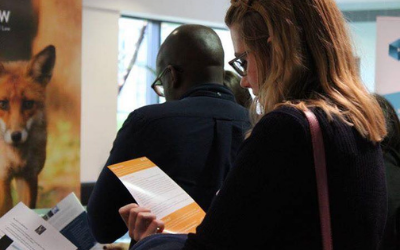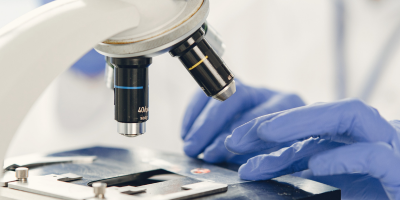By Lawrence Topley
In July 2024, the UK became the first European country to approve lab grown meat. Now, on 7 February 2025, the cell cultivated product has hit the shelves at Pets At Home in the form of dog treats called ‘Chick Bites’ (BBC News, 2024). This news comes after London-based startup Meatly had its application to use cell-cultivated chicken to form the protein source of its pet food approved by the Foods Standards Agency (FSA) in 2024 (Meatly, 2024).
The process used by the company involves taking cells from a chicken egg, and cultivating it with a range of amino acids, proteins and vitamins that act as a catalyst for growth in a bioreactor (Meatly, 2024). Over time, the cells grow into a paste-like protein which is used in Meatly’s Chick Bites.
Whilst there is no current application for the use of lab grown meat for human consumption, the arrival of this cell cultivated food shows the fruit of the UK regulator’s willingness to support the provision of meat alternatives and the technologies behind them. Despite falling investment in the sector over the last year, this call from the FSA, and the release of these goods, makes the UK the European front runner in the cellular agriculture market (Good Food Institute, 2024), which seeks to appeal to new trends in consumer habits whilst addressing the environmental and ethical concerns over the rearing of livestock.
The journey to retail shelves has been long awaited. Applications to sell novel foods made by companies such as Meatly, face a rigorous test to ensure safety standards are met. The law surrounding this process stems from retained EU legislation, which, post-Brexit, is governed by the FSA, who are empowered under the Foods Standards Act 1999 to preside over food safety standards in the UK (FSA, 2024). Alongside the FSA, the process used by Meatly was approved by the Agency for Animal and Plant Health (APHA), who are responsible for the welfare of the animals and plants in the UK and the Department for Environment Food and Rural Affairs (DEFRA) who are responsible for safeguarding the environment and supporting the UK farming industry, demonstrating the wide ranging approval met by the lab-made meats.
The legal basis of the application process begins with the EU Regulation 2015/2283 (Eur-Lex, 2015), which governs the introduction of novel foods onto the EU market and defines them ‘as foods or food ingredients that were not commonly consumed in the EU or UK before May 15, 1997.’ This Regulation sets out the goal for Member States to achieve in producing a defined list of novel foods. Pursuant to that, EU Regulation 2017/2470 (Eur-Lex, 2017) established a list of novel foods to be sold with the EU and UK, where we can see cellularly cultivated goods fall under this definition.
Novel foods such as these are therefore subject to the application process set out in Commission Implementing Regulation (EU) 2018/456 (Eur-Lex, 2018). This involves a consultation process, whereby applicants must demonstrate that their product is both safe for consumption and would not be nutritionally disadvantageous to the product it is replacing, in this case meat. This point may prove crucial in ensuring consumers trust the food they are feeding to their pets. Applicants must next pass a series of technical steps, which requires that they submit as much information as possible surrounding their goods and their processes. Once passed, these goods can then be released onto the market.
The decision has since been endorsed again in early October 2024 with a government grant of £1.6 million, awarded to the FSA by the Government’s Engineering Biology Sandbox Fund (FSA, 2024) with the purpose of improving the safety and standards of granting cell-cultivated goods placed on the market specifically in the UK. One might expect part of this sum to be allocated to efficiencies in the application process and perhaps making it less stringent (standards are currently higher in Europe than in other jurisdictions) in order to allow the streamlining of regulations to open up and advance the creation of cellularly cultivated goods in the UK market post-Brexit, without compromising the safety of novel foods. Whether the UK would adopt its own regulation, in an effort to make the process more attractive to firms, is yet to be seen. However, this seems the most obvious route to attract competition, lower prices and improve the marketability of the cultivated goods, especially if public opinion is already on the fence on consuming lab made meats (FSA, 2024).
The approval from the FSA, leading to the arrival of Chick Bites, has a number of wider implications. Most significantly, it signals belief in the benefits of cell-cultivated products and their place in wider society at state level. Effective harnessing of this technology could lead to improvements in animal welfare. The number of livestock slaughtered for food could decrease, since around 20% of meat produced globally is consumed by pets (Guardian, 2021). There could be environmental benefits too, from a reduction in agricultural greenhouse gases, which (according to a UK government source) are the UK’s fifth highest greenhouse gas contributor (UK Research and Innovation, 2022).
These developments come at a time when manufacturers are also developing vegan pet food from plant sources, and there are now several options established on the market in the UK. Studies published by Professor Andrew Knight at the University of Winchester point to improved health outcomes for both cats and dogs from nutritionally-complete formulations of vegan pet food, as well as potentially profound environmental benefits in terms of land and water use as well as GHG reductions (University of Winchester, 2023).
This initial offering from Meatly promises only to be first of many milestones of the company’s journey, with the firm’s plans to scale up production over the next 3-5 years (Meatly, 2025), we could see an expansion of cell cultivated pet food to become a regular across UK supermarkets.










Recent Comments